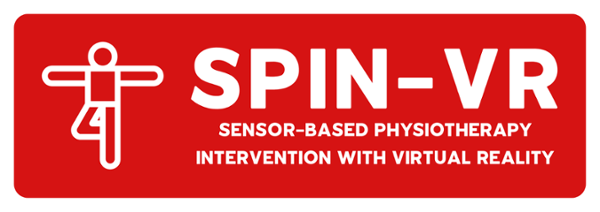SPIN-VR

Study Details
-
Full title of clinical trial: A randomised feasibility study to evaluate home-based personalised virtual reality physiotherapy rehabilitation compared to usual care in the treatment of pain for people with knee osteoarthritis
-
Study design: Single centre, open-label, feasibility randomised controlled trial
-
Chief Investigator: Dr Mohammad Al-Amri, Senior Research Fellow, Cardiff University
-
Sponsor: Cardiff University
-
REC approval: 23/WA/0311
-
IRAS: 328066
-
Funding: Versus Arthritis
-
Trial registration: NCT06639867
-
Study protocol: V4.0
-
Status: Recruiting
Lay Summary
Physiotherapy is the recommended treatment for knee osteoarthritis. However, it can be difficult for people to keep to a course of physiotherapy when they are at home.
Cardiff University have developed an affordable virtual reality-based home physiotherapy system which aims to help keep people motivated carry out their physiotherapy acutely and consistently at home. The system creates a course of physiotherapy exercises which is personalised to the abilities and goals of the user. The virtual reality system changes the exercises in response to how easily patents are carrying them out. The system combines sensors which are worn on the body with virtual reality games on a laptop whereby the user controls a character on the screen as they carry out the exercises.
The virtual reality system has been tested in a university, but we need to find out whether it works when patients use it at home. Before conducting a large-scale study to test this, we will first assess the feasibility and acceptability of the virtual reality physiotherapy system in the home, and whether a future study is likely to be possible.
We will recruit 50 patients with knee osteoarthritis who have been referred to a physiotherapy clinic. Half will be randomised to the virtual reality system and half to standard physiotherapy care, for 12 weeks.
Participants will come to a clinic to be assessed, and then allocated to a treatment. Those receiving the virtual reality system will be shown how to use the system, and provided with equipment to take home. Participants receiving standard care will be shown how to carry out exercises at home. Participants in both arms can access further support. Measurements will be taken up to 24 weeks after starting treatment.
CEDAR's role
- Protocol design, approvals and study initiation
- Randomisation and data management
- Monitoring and safety reporting
- Analysis and reporting
Information
The study is currently open for recruitment. If you would like more information about the study, please contact Denise Nistor in Cardiff University (nistord@cardiff.ac.uk), or Samuel Bird in CEDAR (Samuel.bird2@wales.nhs.uk).
Additionally, you can access and download study documents below.
Newsletters
Find all the current and past newsletter for the SPIN-VR study here.
Current newsletter:
Past newsletters: